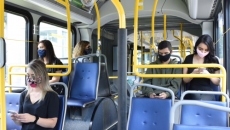The agency that guards Canada's borders is putting would-be travellers on notice: if you're not eligible to enter the country now, you won't be on Monday.
That's the clear message from the Canada Border Services Agency as it prepares for next week's preliminary easing of COVID-19 travel restrictions.
After midnight Sunday night, fully vaccinated Canadian citizens and permanent residents will be exempt from quarantine requirements when they enter the country.
However, the exemption only applies to those eligible travellers who have gone 14 days since receiving a full course of one of the four vaccines approved for use in Canada.
It also requires travellers to use the ArriveCAN app or online service to log their vaccination details and COVID-19 test results prior to departure.
Denis Vinette, CBSA's vice-president, travellers branch, calls it a very cautious, early first step in the process of easing restrictions that have been in place since March 2020.
"What's not changing are the current restrictions to travel to Canada; I think that's kind of the first key thing that folks need to understand," Vinette said in an interview.
"If you were unable to come to Canada on July 4 of this year, you can't come in on July 5. There's been no change to all of the restrictions and the provisions that have been issued on that front."
Nor will the quarantine requirements be waived for travellers who arrive in Canada prior to Monday, the agency noted.
The ArriveCAN portal can be accessed either via the Apple or Android app or online via the federal government's website at canada.ca.
Prime Minister Justin Trudeau said he's confident the border agency has the tools and the personnel required to deal with the changes Monday, adding that the government's priority will always be the safety of its citizens.
"I think it's really important that we are moving forward on allowing people who are currently allowed to come into Canada … to be able to do so and not have to quarantine anymore, because they're double-vaccinated," he said.
"For others, we will be looking at how this works before we open up to next steps, but we will continue to put first and foremost the safety and security of Canadians at the top of everything we do."
The mutual travel restrictions between Canada and the United States — which prohibit all discretionary travel between the two countries while continuing to allow the movement of trade, essential workers and international students — are due to expire July 21.
It's too soon to say how the rules might evolve by then, Trudeau said.
"When we start reopening so Americans and others who are fully vaccinated can come into Canada will depend on how this goes — on the data we collect, on how we're able to keep Canadians safe even as we make adjustments to the rules."
Now is not the time to be cavalier, he added: Yukon is dealing with its largest spike of cases since the pandemic began, despite having more than 70 per cent of its population fully vaccinated.
"Every step of the way, we're going to make sure we keep Canadians safe."






